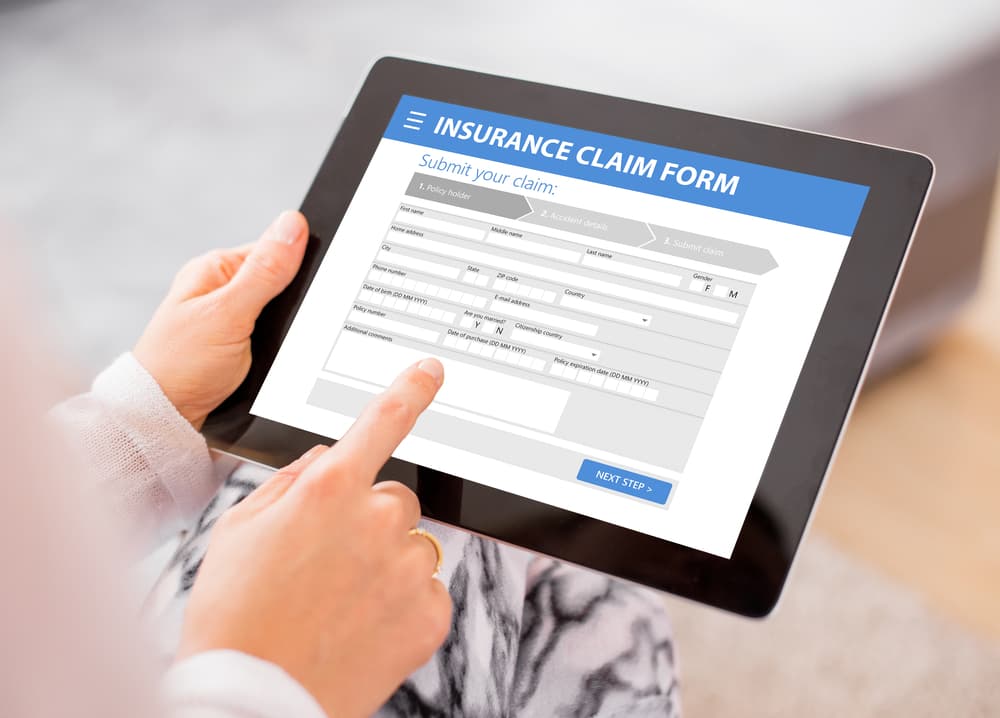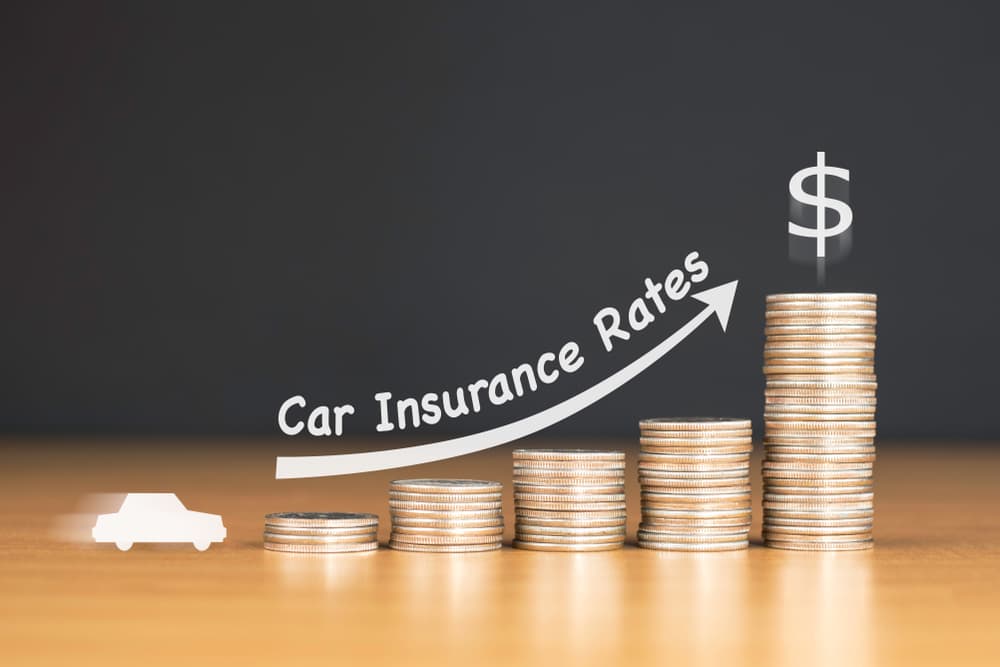
Many drivers are unsure what steps to take after being involved in a car accident that they did not cause. The question often arises. Do I call my insurance if a car accident is not my fault? Even when another driver is clearly at fault, failing to report the accident can lead to complications later, especially when dealing with property damage, medical bills, or disputed claims.
This guide by car accident lawyers at Gray Ritter Graham provides clear answers for Missouri drivers who want to understand their obligations after a collision and the role their insurance carrier may play, even when liability belongs to the other party.
Why It Still Makes Sense to Notify Your Insurance Company
 Most insurance policies include a clause that requires policyholders to report any accident, regardless of who is responsible. This clause protects the insurance company’s ability to evaluate potential liability and determine whether coverage applies.
Most insurance policies include a clause that requires policyholders to report any accident, regardless of who is responsible. This clause protects the insurance company’s ability to evaluate potential liability and determine whether coverage applies.
If drivers fail to notify their insurer, they may unintentionally breach their contract. That could result in denied coverage, particularly if a related claim arises weeks or months later. For example, if vehicle damage is more extensive than initially thought, or if the other driver later alleges that you contributed to the collision, your insurer may be unable or unwilling to assist.
In addition, some forms of coverage available under your own policy may apply even when you did not cause the accident. These may include:
- Collision coverage. Pays for vehicle repairs while waiting for a liability determination or third-party reimbursement.
- Personal Injury Protection (PIP) or Medical Payments (MedPay). Covers your immediate medical costs regardless of fault.
- Uninsured or underinsured motorist coverage. Applies when the at-fault driver lacks sufficient insurance.
Notifying your insurance company also ensures that your version of events is on record. This can prove important if the other driver changes their story or a police report contains inaccurate information.
What Happens If You Choose Not to Report the Accident?
Failing to report a car accident to your insurer, especially when another party is involved, can result in more than just administrative issues. The consequences may include the following.
- Policy violations. Most auto insurance contracts require prompt notice of any incident that may result in a claim. Failing to report the accident could give your insurer legal grounds to deny coverage altogether, even for unrelated future claims.
- Loss of coverage options. Suppose you later experience vehicle damage or medical complications from the accident, and did not report it. In that case, your insurer may argue that you deprived them of the opportunity to investigate and mitigate damages.
- Disputed liability. If the other party files a claim against you or alleges partial responsibility, your insurer may be unprepared to defend your interests without prior notice.
- Claim processing delays. Without early documentation, your insurer may need more time to evaluate the facts and determine coverage, which can delay payment or authorization for repairs.
In short, even if you plan to seek compensation from the at-fault driver’s insurer, notifying your carrier protects your legal position and creates a documented timeline of events.
How to File a Third-Party Insurance Claim
 In Missouri, the driver responsible for a car accident also covers the damages. If another driver caused your accident, you have the right to file a claim directly with their insurance company. This is called a third-party claim.
In Missouri, the driver responsible for a car accident also covers the damages. If another driver caused your accident, you have the right to file a claim directly with their insurance company. This is called a third-party claim.
To file a third-party claim, you will need:
- Accident information. Collect the other driver's name, contact information, and insurance details. Record the make and model of all vehicles involved and the location and time of the incident.
- Police report. Missouri law requires a police report for any accident involving injuries, death, or property damage exceeding $500. The report may help support your claim and clarify who is at fault.
- Medical records and damage estimates. Provide copies of medical evaluations and repair estimates to show the full scope of your losses.
- Photos and witness statements. Photographs of the accident scene, damage, and statements from neutral witnesses can strengthen your position.
Once you have gathered this information, you may contact the at-fault driver’s insurance company and begin the claim process. An insurance adjuster will likely be assigned to investigate the incident, assess the damage, and offer a settlement.
Remember that the at-fault driver’s insurance company does not represent your interests. They may offer a low settlement or attempt to minimize their liability. For this reason, many injured drivers speak with an attorney before accepting a payout.
Should You Use Your Own Insurance Even If You Were Not at Fault?
It may seem unnecessary to involve your insurance company if you are not at fault for the accident. However, involving your insurer may result in faster resolution, particularly when third-party processing is delayed, especially if the claims process with the other driver’s insurer becomes slow, contested, or incomplete.
Your insurance may offer faster coverage for:
- Vehicle repairs under collision coverage
- Medical expenses under MedPay or PIP, depending on your policy
- Rental vehicle costs if your car is inoperable
- Uninsured or underinsured losses if the at-fault driver has inadequate coverage
When your own insurance company pays for your losses, it may seek reimbursement from the at-fault driver’s insurer through subrogation. If you're successful, you may also recover your deductible.
Some drivers worry that using their policy will result in a premium increase. In Missouri, insurers typically do not raise rates for accidents that are not at fault, but practices vary by carrier. It is essential to ask your insurer how they treat no-fault claims under your specific policy.
What to Do Immediately After a Not-at-Fault Accident
After a car accident where another driver is responsible, what you do in the following minutes and hours can influence your legal rights and financial recovery. A measured, informed approach helps preserve evidence and establish a record of what happened.
Step-by-step actions include:
- Call 911 if anyone is injured or if any vehicle has visible damage. A police report will serve as an objective record of the incident.
- Exchange information with the other driver, including full name, address, phone number, insurance company, and policy number.
- Photograph the scene, including damage to both vehicles, the surrounding area, traffic signs, road conditions, and any visible injuries.
- Speak with witnesses and collect their names and contact details.
- Avoid discussing fault with the other driver. Statements made at the scene may be used later to deny liability or reduce compensation.
- Seek medical attention, even if injuries are not immediately apparent. Some symptoms may develop after the initial shock wears off.
- Notify your insurance company and consider contacting a legal professional if injuries are involved or if property damage is substantial.
Police reports carry significant weight in both insurance claims and legal proceedings. Even when no injuries are immediately apparent, requesting that an officer complete a report helps document what happened and who was involved.
The report may include witness statements, diagrams, and observations of road conditions or vehicle damage. Insurance companies often rely on these details to assess liability. If the other driver later disputes the facts, the police report can serve as an impartial reference. In Missouri, you can request a copy through the law enforcement agency that responded to the scene.
These actions help document your experience and prepare for future disputes with an insurance company or opposing party.
Will Your Premium Increase if You Report a No-Fault Accident?
 Many drivers worry that reporting a car accident, even one they didn't cause, will increase their insurance rates. Whether this happens depends on the insurer's policies, the driver's history, and the specific circumstances of the accident.
Many drivers worry that reporting a car accident, even one they didn't cause, will increase their insurance rates. Whether this happens depends on the insurer's policies, the driver's history, and the specific circumstances of the accident.
In Missouri, insurers can evaluate your claims history when setting premiums, but state law discourages rate hikes for not-at-fault accidents alone. However, an insurer may still apply a surcharge or classify the risk differently if multiple claims have been made within a short period or if fault is disputed.
Drivers should contact their carrier to ask how a not-at-fault claim might impact future rates. Maintaining transparency and cooperating with your insurer helps avoid adverse outcomes while preserving your ability to seek full compensation.
Common Mistakes Drivers Make After a Not-at-Fault Accident
Even drivers not responsible for a collision can take actions—or fail to act—that later affect their ability to recover losses. Here are some of the most frequent missteps.
- Not reporting the accident. Some drivers skip reporting to avoid paperwork or assume they are not required to act. This can result in lost coverage or complications during the claims process.
- Failing to document evidence. Without photographs or a police report, proving what happened may become more difficult if the other party denies fault.
- Relying solely on the at-fault driver’s insurer. Drivers who trust the opposing insurance company to resolve the matter reasonably may experience delays or receive inadequate settlement offers.
- Accepting an early settlement. Insurers may offer quick payments before medical issues have been fully diagnosed or property damage has been assessed.
- Missing medical treatment. Failing to follow up on medical care can undermine a claim for damages related to physical injuries.
- Not consulting an attorney. Legal advice can help protect financial recovery in cases involving injury, lost income, or contested liability.
Avoiding these mistakes allows the legal and insurance process to proceed more efficiently and increases the chances of a full and fair outcome.
When Should You Contact a Lawyer After a Not-at-Fault Accident?
Not every car accident requires legal intervention. However, speaking with a car accident attorney in certain situations may help clarify your rights and improve your ability to secure compensation.
You may benefit from legal guidance if:
- Injuries are involved. Medical bills, lost wages, and long-term physical effects often lead to disputes about compensation.
- The insurance company delays or denies your claim. Legal counsel can challenge these decisions and present additional evidence on your behalf.
- The at-fault driver is uninsured or underinsured. Missouri law requires liability coverage, but many drivers do not carry sufficient protection.
- Liability is disputed. If the other driver contests responsibility, an attorney can collect evidence and represent your interests during negotiations or litigation.
- You were a passenger or pedestrian. Claims by non-drivers can involve multiple insurers and legal questions about primary and secondary coverage.
Missouri's statute of limitations for filing a personal injury claim related to a car accident is typically five years from the date of the incident. Failing to file within this period may result in a loss of legal rights. A consultation with an experienced auto accident lawyer in St. Louis can help determine whether your case meets the legal requirements for action.
Protecting Your Rights After a No-Fault Accident
 Even when another driver is responsible for a collision, you may still have legal obligations under your insurance policy and opportunities to recover losses through third-party or first-party claims.
Even when another driver is responsible for a collision, you may still have legal obligations under your insurance policy and opportunities to recover losses through third-party or first-party claims.
Reporting the accident to your insurance company helps protect your policy rights, document the event, and preserve access to benefits you may not realize you hold.
Taking immediate steps, such as gathering evidence, seeking medical care, and contacting insurers, can simplify the claims process and protect your financial interests. Legal representation can further support a strong outcome when injuries are involved or liability is unclear.
Missouri drivers have options after a no-fault accident. Knowing those options and acting decisively can help reduce stress and provide a more straightforward path to recovery.
Speak With a Car Accident Attorney in Missouri
Legal guidance can help you understand your rights, protect your interests, and determine the best course of action if you were involved in a car accident and were not at fault.
The St. Louis personal injury attorneys at Gray Ritter Graham offer free, confidential consultations to discuss your case, answer your questions, and explain the steps available under Missouri law.
All conversations are private, and you are not obligated to take legal action after the consultation. You decide what information to share and whether to proceed.
To learn more about how we can help you, call 314-241-5620 today. Taking the first step can provide the clarity you need to move forward confidently.

 RSS Feed
RSS Feed